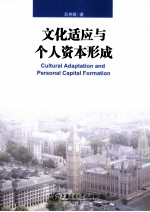

文化适应与个人资本形成PDF电子书下载
- 电子书积分:10 积分如何计算积分?
- 作 者:薛惠娟著
- 出 版 社:上海:上海交通大学出版社
- 出版年份:2011
- ISBN:9787313070029
- 页数:234 页
1 Introduction:Chinese Students and UK Higher Education 1
1.1 My Own Story 1
1.2 Globalisation and International Education 3
1.3 The China Market—Chinese Students and UK Education 7
1.4 Research Questions 16
1.5 Book Structure 18
1.6 Conclusion 20
2 Sources and Methods 21
2.1 Introduction—Sources 21
2.2 Methodology and Research Methods 22
2.3 Quantitative Data—Closed Questions 30
2.4 Qualitative Data 33
2.5 Access and Ethics 38
2.6 Conclusion 39
3 Studying Abroad:Empirical and Theoretical Perspectives 40
3.1 Introduction 40
3.2 Bourdieu,Cultural Capital and Education 40
3.3 The Bourdieusian Movement in Educational Analysis 51
3.4 International Education,Acculturation and Cultural Capital Formation 62
3.5 Conclusion 69
4 Motives,Mechanisms and Choices 71
4.1 Introduction 71
4.2 Reasons and Motives for Chinese to Undertake International Education 71
4.3 The"Structuring Structures"—Family and Education 81
4.4 Programmes in UK Higher Education 94
4.5 Sources of Funding and Channels to UK Higher Education 97
4.6 Conclusion 101
5 Cultural Adaptation and Capital Formation:The Educational Dimension 103
5.1 Introduction 103
5.2 Culture Shock,Acculturation and Cultural Capital 103
5.3 Language Barrier 107
5.4 British Teaching and Learning Styles 112
5.5 Cultural Adaptation and Capital Formation:The Educational Dimension 127
5.6 Conclusion 130
6 Cultural Adaptation and Capital Formation:The Social Dimension 132
6.1 Introduction 132
6.2 Living in the New Culture 133
6.3 Communication and Friend-making 138
6.4 Financial Matters and Part-time Jobs 149
6.5 Cultural Adaptation and Capital Formation:The Social Dimension 153
6.6 Conclusion 158
7 Education,Capital Formation and Career Development 160
7.1 Introduction 160
7.2 Education,Capital and Careers 160
7.3 The Career Trajectories of First-wave Students 163
7.4 The Career Expectations of Current Students 178
7.5 Transformation,Capital Formation and Career Development 183
7.6 Conclusion 186
8 Conclusion:Education and Capital Formation in China 188
8.1 Introduction 188
8.2 International Education for the Chinese People 188
8.3 Capital Formation and the Shaping of Talents in China 189
8.4 Implications of the Research 196
8.5 Questions Raised and Areas for Further Research 201
8.6 Conclusion 202
Appendices 205
Appendix 1 Job History and UK Experiences of Past Students 205
Appendix 2 Significant Chinese Government Policies Affecting Chinese People Receiving International Education(1977-2006) 208
Appendix 3 Results of Statistical Tests 210
Appendix 4 Research Design 211
Appendix 5 Summary of Sample Demographics 212
Bibliography 215
后记 234
- 《东北民歌文化研究及艺术探析》(中国)杨清波 2019
- 《培智学校义务教育实验教科书教师教学用书 生活适应 二年级 上》人民教育出版社,课程教材研究所,特殊教育课程教材研究中心编著 2019
- 《只想一个人喝酒》梅丸 2018
- 《大学英语教学的跨文化交际视角研究与创新发展》许丽云,刘枫,尚利明著 2020
- 《社会资本与村庄治理转型的社区机制》张国芳等著 2019
- 《跨文化交际背景下的中西文化比较研究》任永进,贺志涛著 2019
- 《生态文化建设的社会机制研究》阮晓莺著 2019
- 《党内政治文化建设指南》苏玉主编 2017
- 《白纻舞及其歌辞的文化解读》王俊,曹化根著 2019
- 《社会文化系统中的翻译》姜秋霞,杨正军 2019
- 《中风偏瘫 脑萎缩 痴呆 最新治疗原则与方法》孙作东著 2004
- 《水面舰艇编队作战运筹分析》谭安胜著 2009
- 《王蒙文集 新版 35 评点《红楼梦》 上》王蒙著 2020
- 《TED说话的力量 世界优秀演讲者的口才秘诀》(坦桑)阿卡什·P.卡里亚著 2019
- 《燕堂夜话》蒋忠和著 2019
- 《经久》静水边著 2019
- 《魔法销售台词》(美)埃尔默·惠勒著 2019
- 《微表情密码》(波)卡西亚·韦佐夫斯基,(波)帕特里克·韦佐夫斯基著 2019
- 《看书琐记与作文秘诀》鲁迅著 2019
- 《酒国》莫言著 2019
